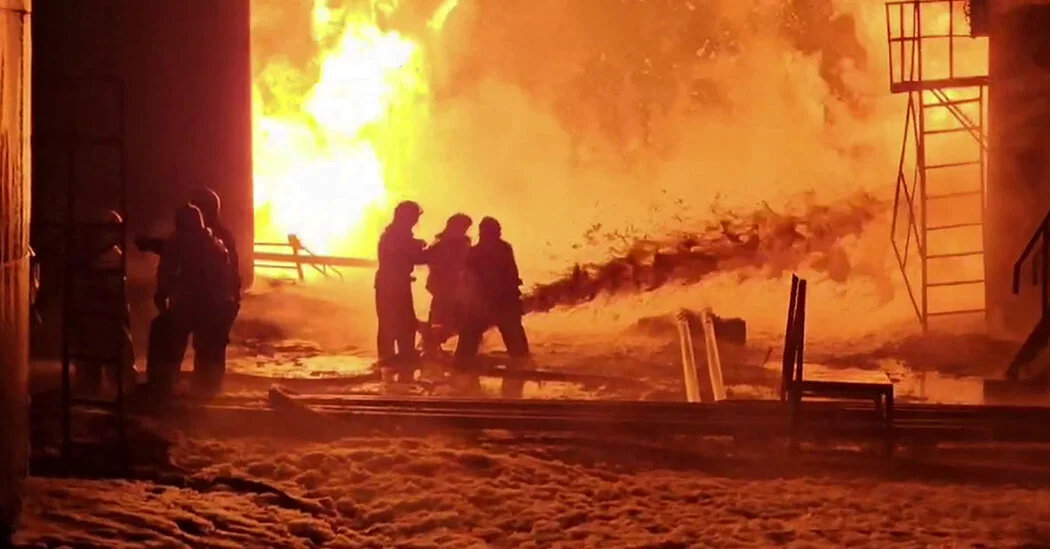Mr. Ernst and Mr. Krutikhin noted that, unlike in other oil infrastructure such as pipelines, a lot of complex machinery and sophisticated engineering goes into refineries, and they can take several months to fix. Some analysts say the repairs could take longer than usual because sanctions prohibit Western sales of certain components to Russia.



But when Russia attacked Ukraine’s nuclear reactor, we were told that was bad.
Edit: one person’s terrorism is another person’s fight for freedom.
Key difference: a major failure at the nuclear reactor is can kill people across a large area.
Taking out refineries is going to raise the cost of gas, and lower the value of oil, resulting in both a cut to drilling and to burning, which is a net benefit for people.
That area being large enough to encompass others. Not just the belligerents.
Please explain how burning a refinery reduces burning?
Prevent crude oil from being refined, and it’s not useful, so people don’t burn it. The quantities passed through the refinery are far greater than the amount present at it on any given day, so one less refinery means a whole lot less consumption.
Oh so what you’re saying is that the US burning Iraqi oil fields in the Gulf war(s) was for environmental reasons.
That’s really progressive.
Burning an oil well directly burns oil which people would otherwise burned, while raising prices and encouraging additional extraction. I’ll also note that Saddam Hussein had people light the oil wells on fire before the US moved in.
An attack on a refinery prevents oil from being burned, and can’t burn oil that’s not there. I’d prefer to see them shut down in a planned matter, but this is better than keeping them going.
Different things are different. Deal with it.
Burning oil to prevent people from burning fossil fuels is certainly a take.
Carbon is carbon. Burning crude oil puts carbon in the air just like burning petroleum does. The difference is now you’ve driven energy costs up while wasting the resource.
Edited to add: so if Saddam burning oil fields in Kuwait was bad, are we also going to admit that Ukraine burning oil refineries in Russia is also bad? Or is it only bad when our enemies do it?
An attack on the midstream is fundamentally different from burning oil at the well in terms of how it affects how much carbon goes into the atmosphere; it results in oil not being extracted and burned.
Oil isn’t highly radioactive you twat.
Never mind the huge difference in impact from oil infrastructure and nuclear, context matters. Who the aggressor is makes a big difference.
Give me your house. If you refuse and fight back you’re a terrorist…
But did you condemn Hamas?
Butwhatabout… Appeal to hypocrisy
Gonna JAQ people off next?
Have you condemned Azov like the Russians want you to?